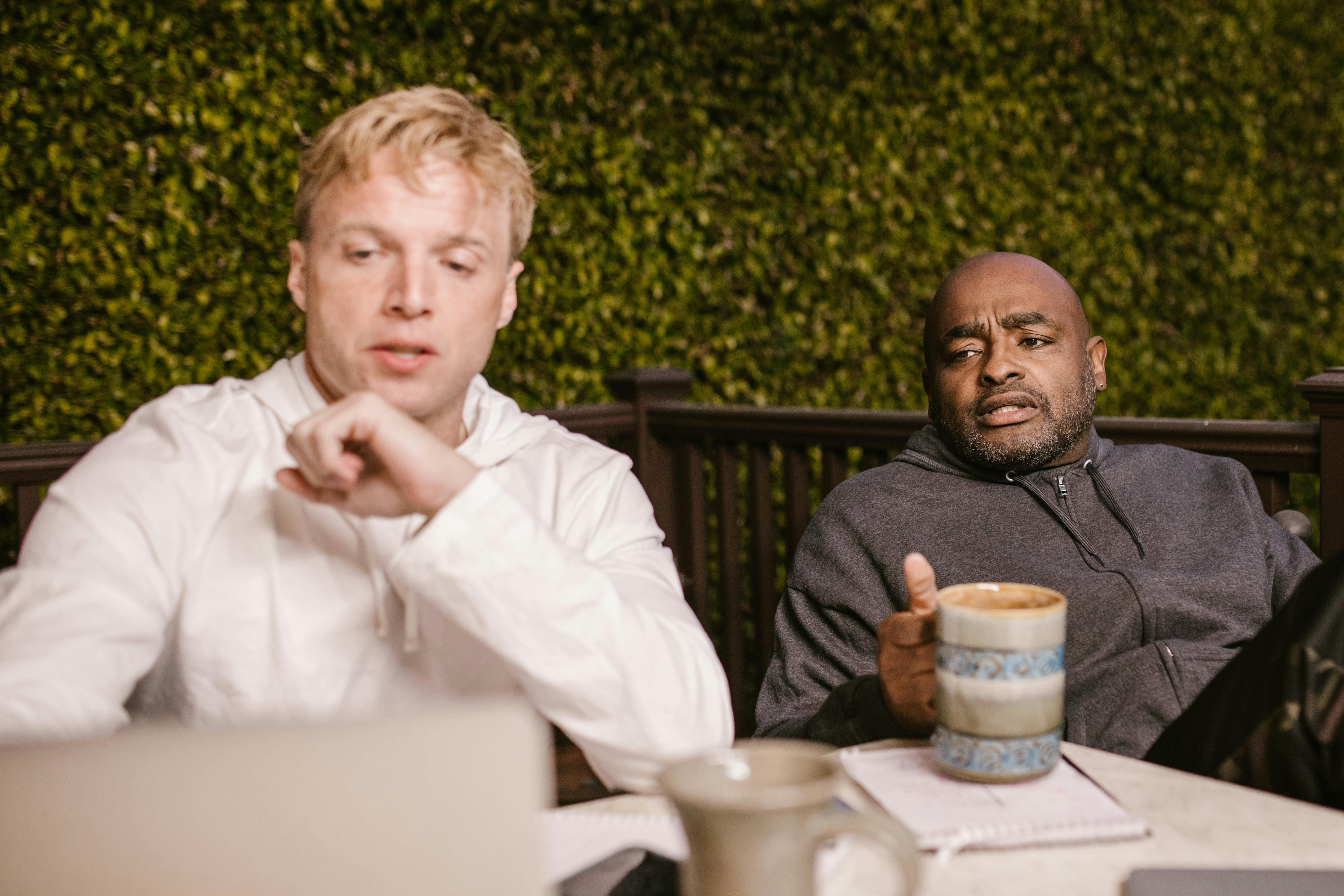Throughout the world, the use of social networks has become a tool for ‘insecurity’ and to generate social changes that lead to peace. Much of the impact was felt in the Arab world, and some in the West, caused by social economic discontent and mismanagement.
Apart from North Africa, the rest of the continent was not affected. It has yet to experience hostile political activism for its use (on social media). When the conditions for war ripened, social media helped the revolts against the regimes.
Widespread use of social networking websites in Uganda by mostly young, curious and adventurous people in universities and affluent households began in 2006. The first site to offer and popularize social networking services was hi5.com. It was famous for its highly graphic and eye-catching features. The Facebook.com insurrection was a year later.
Hi5.com’s blocking of university students’ access gave service provider Facebook a monopoly on the market, as there was no other option for young people to start relationships online and share what was on their minds.
When Facebook.com was born, it spread like wildfire, so much so that no one escaped. It is now the most widely used social network in the world; all universities, corporate entities, service organizations and the majority of Ugandans access the Internet, with increased use of Facebook.
Hardly the staff of organizations and companies spend a single day without signing up for chats, getting to know other people’s minds and starting new relationships. In fact, for most users, visiting the site is a priority, despite having very attractive hours at workplaces.
However, the use of social media for political reasons remains a matter of controversy in Uganda; there are some aspects that emerge, especially visible during campaigns for political office. It is more limited to expressing what subscribers have in mind, to cement social relationships, pass the time, start romantic relationships, promote business ideas and track down old friends.
It also provides an alternative means of communication, cheaper than other communication channels in many ways. While phone calls cost more than a dollar to make a point to a single person in the entire world, the same amount allows for mass communication, to the point of exhaustion when taking advantage of social networking sites.
Without having to face the high costs of traveling abroad and back home to multitask, in some parts of the country, which have Internet access, it takes almost no time and effort to multitask in much less time.
The manufacture of Internet-enabled phones made life in the world of social networking even more interesting; Without having to go to classes to learn how to use it, just with so little to learn, most of the young people now use it, although the knowledge of the internet is limited to chatting and gambling.
But circumstances also limit them to having such a large amount of knowledge, to survive through betting and to maintain love relationships. The way of life in Uganda guides citizens to work hard to survive, instead of complaining about the leaders and the political economy. Politics is the end of the ‘idle’ and a reserve for those who already survive from it.
Social media is more respected in the modern world for its role in generating and spreading violent protests and armed rebellions around the world, especially in the Arabian Peninsula.
While that is true, social media can be used well, without compromising peace and stability. For example, it can be used to promote business ideas and organizational values in the eyes of customers.
Widespread poverty, limited income and low savings, whether perpetuated by the political class, motivate Ugandans to work harder and live more than they do the conditions for violent change. Many people struggle to find one meal a day; those able to do are restricted to certain food options that are cheap and do not constitute balanced deities. In such circumstances, social networks are applied to find and share escape strategies, among which is the adoption of the tool of violence.
Thinking about the situation a lot causes one to wonder if the poor socioeconomic situation was deliberately conditioned by the government to influence citizens to focus more on developing the survival strategies necessary to meet primary needs (food and significant living standards). ) than in giving them space and time to breastfeed. nationalist feelings for the change of situation, through channels such as social networks.
Choosing to dedicate time to politics and generating conditions for socioeconomic change only disconnects change agents from the primary commitments necessary for their survival. Furthermore, it is impossible to spend time advocating for change on an empty stomach and working under a cloud of life uncertainties and feelings of hopelessness. The consequence of that is violence against oneself and others, through substance abuse and crime. In these conditions, social networks would be useful to facilitate the ventilation and release of bad emotions.
Bad emotions lead to aggressive behavior and are costly to both society and the aggressor. Aggressive people use violence as a survival mechanism during difficult economic and political times to make ends meet by any means, through violent robbery, violent protests, rampant corruption, violent relationships, and mob justice against economic, social, and political elements. bad guys in the community.
Today, the threat of internal insecurity that arises among citizens, perpetuated by compatriots, is hurting and generating fear on the internal front. Everything that leaves the hands of the Ugandan workers ends up in the pockets of thieves. Not only do they end up denying fellow citizens what belongs to them, but they go ahead to free them from their vital obligations, through acts of murder!
Killers are people who, due to difficult economic times, marginalization, and lack of redress from law enforcement, resort to expensive strategies to make ends meet. The use of social networks perfectly prevails in this type of situation as channels, through which citizens advocate for structural reforms.
However, social networks continue to be a privilege of urban dwellers, due to their proximity to influential areas, where new ideas from the rest of the world accumulate before spreading to the rest of the country. These include the use of phones with Facebook provisions, access to computers, and access to energy.
The limited use of social networks, by itself, does not save the country from popular revolts, changes of the political guard or socioeconomic situation. But the very conditions, under which Ugandans live, will one day change to widely consume the authorities for their irresponsibility, with or without it (social media). Many years before the introduction of computers in the country, revolutions took place. The process, however, is much longer. By the time action is needed for change, mass mental illness, due to a hopeless life, could have dimmed the hopes in the minds of those still struggling.
But by the time conditions begin to force change to occur, social networking devices will be widespread across the country. They will facilitate change with much less effort, by highlighting mismanagement, inhumane living and hopelessness, to provoke anger, hatred and violence to force change. The reverse will also be true, when those in authority feel emotionally driven to act on behalf of the people, so as to prevent the adverse effects of violence.
Currently, there is a growing insecurity and fear among the citizens, which could extend to reach the class of Ugandans, who currently feel safe, so; From self-hatred, there is mutual, group, and national hatred for everything in the country, including leadership. It is at this moment when the use of social networks for political, economic and social change will become relevant in the mobilization and coordination of rebellions.
The continued flood of cheap Chinese phones and computers into the Ugandan market will in the near future increase access to social media for most, if not all Ugandans. And when the social environment is persistently ‘infested’ with poverty, famine, preventable deaths, insecurity and mismanagement, the use of social networks to change the sculptural will be justified and eminent.
Although the use of social networks is an amazing strategy for positive change, it can be infiltrated by security agents, who will be attracted by its vitality to facilitate access to information about the state of mind of users, mobilize the social action and possible causality. of revolutions and counter-revolutions, which is known to unleash chaos on nations.
The 1994 genocide in Rwanda offers a good idea of how bad counterrevolutions can be. If there are no meaningful systems in place to provide for the process of eliminating mentalities that show signs of revolution and counter-revolution among people of the same nation, it will always be a matter of time before violence breaks out, facilitated by social media.
However, there are setbacks that social media recipients suffer once they misuse the facility, when some of the opinions posted damage their reputation and deny them social capital or destroy relationships. Negative opinions posted alienate loved ones and raise concern among authorities about the harm that the person with negative thoughts could cause to themselves or others through social networks.
In general, significant change is possible when the need for it is so great that the signals make it clear to disgruntled citizens that the leadership will face little or no opposition; the change would occur with much less damage to the economy and lives. The use of social networks guarantees certain values to protect against self-harm and image destruction.
The applicability of social media for economic and social change is far from real in Uganda. The ‘barometer’ reads peace and hard work to survive. The use of social networks can be harmful, if protection values and rules of use by the user are not established.
The effective use of social networks is an event of the future. The massive use of gadgets such as phones and computers will surely influence the Ugandan society for the better, but only in the long run. The difficult times that the country is experiencing today can only be faced with resilience and coping, as some citizens are already doing.
But if the insecurity and widespread fears for it becomes a massive effect; first, insecurity will become national; second, there will be a greater need for change; third, justifiable action for change will occur. Generally, change has its time, it will always occur.




